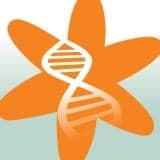Beckman Coulter, Brea, Calif, has received FDA clearance for a new Hemoglobin A1c assay (HbA1c-) with improved performance for standard use on the company’s its UniCel DxC Systems.
The HbA1c- reagent improves accuracy and precision to meet the latest accuracy grading from the College of American Pathologists (CAP) and the recommendations of the National Glycohemoglobin Standardization Program (NGSP) and International Federation of Clinical Chemistry (IFCC).
“Ultimately, the standardization and new assay will allow physicians to maintain diabetic patients under better glycemic control and therefore reduce complications of the disease,” says Jack Zakowski, PhD, FACB, director of Beckman Coulter Diagnostics Scientific Affairs.
HbA1c- is standardized and holds a certificate from the NGSP.
Features include:
- Ready-to-use liquid reagents for A1c and total hemoglobin
- Five-level calibrator set
- 30-day on-board reagent stability
- 7-day calibration stability
- No cross reactivity with HbA1a, HbA1b, acetylated hemoglobin, carbamylated hemoglobin, and glycated albumin
- No significant interference from hemoglobin variants HbS, HbC, HbD, HbE, and HbF
Measurement of hemoglobin A1c is accepted as a method to measure long-term glucose control in patients with diabetes mellitus. Determination of hemoglobin A1c provides the average level of blood glucose over the previous 3 months and is an important tool for monitoring the efficiency of dietary control and therapy during treatment for diabetes.
HbA1c-, when used in conjunction with Beckman Coulter’s UniCel DxC System and Synchron/AU Hemolyzing reagent, is intended for the quantitative determination of hemoglobin A1c concentration in human whole blood.
[Source: Beckman Coulter]


